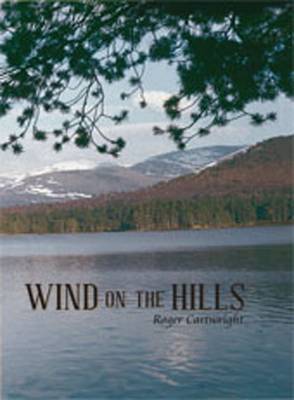Part 1 describes growing up in the countryside during and after the Second World War. Roger Cartwright was born in Derby in 1935 and first became interested in animals and birds when he saw the parrots and monkeys at Derby Arboretum. This early love of nature was consolidated by his parents' encouragement and his experience of living in Bentley, Hampshire where the pre-industrial farming system with horses and old rural way of life still persisted. When he left school he looked for an exciting outdoor job with travel to the countries he had read about - possibly a Game Warden in Africa or a Mountie in Canada. He eventually decided to train as a Forester. However, before this ambition could be realised he spent an interesting two years of Army National Service with a historic cavalry regiment in Germany. He was a member of both the regimental swimming and ski teams and had the opportunity for further training in horse riding that he had started while gaining practical forestry experience in the Quantock Hills. After finishing National Service he completed his forestry training with the Forestry Commission in Perthshire.
Part 2 is about realising his dream, working for the Nyasaland Government Forestry Department. It describes his life as a Forester and honorary game warden/hunter and naturalist in this beautiful, little known mountainous country with its deep Rift Valley lake. Nyasaland was part of the Federation of Rhodesia and Nyasaland and Roger soon understood the African's suspicion of this alliance and saw the dark side of colonial rule. He describes what it was like living and continuing to work in "the leopard infested hills" (as described in the British press) of the Northern Province throughout the 'State of Emergency'. He also gives an impression of some of the benefits for both Europeans and Africans of colonial government. Less than a century earlier Nyasaland had been at the centre of the slave trade and there was still a strong sense of the legacy of David Livingstone and the administration of this 'Protectorate' was relatively fair and tolerant. Roger welcomed the changes that followed the 1960 "Wind of Change" speech made by Harold Macmillan.
Although he loved the life, the people and the country, he realised that there would be no long-term future for him in this new Africa, even though it would be better for Nyasaland and the African people. After his experience in Nyasaland, he was inspired to train and eventually qualify as a Landscape Architect and this led to the next phase of his life when he was able to do much socially useful planning, environment and countryside work. He has always missed the freedom and excitement of his early life in the 'bush', which is described in this book.
- ISBN10 1904244866
- ISBN13 9781904244868
- Publish Date 20 November 2012
- Publish Status Out of Print
- Out of Print 4 September 2024
- Publish Country GB
- Publisher Carnegie Publishing Ltd
- Imprint Scotforth Books
- Format Paperback
- Pages 456
- Language English
